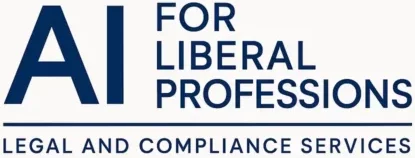FRIA for liberal professions
- Home
- FRIA for liberal professions
Liberal professions as deployers of AI providing public services will be obliged to conduct a FRIA as of 2nd August 2026
The Fundamental Rights Impact Assessment (FRIA), introduced by Article 27 of the EU AI Act, will become mandatory as of 2 August 2026 for “deployers who are public sector bodies or private entities providing public services, and deployers of high-risk AI systems referred to in Annex III, points 5(b) and (c).”
While liberal professionals (lawyers, notaries, medical doctors, architects, etc.) are not explicitly named, their inclusion depends on the interpretation of two key concepts, “deployer”, and “private entities providing public services.”
Liberal professions are “deployers” where they use AI systems under their own authority in the context of their professional activities. The regulation defines a deployer as: “a natural or legal person, public authority, agency or other body using an AI system under its authority, except where the system is used in the course of a purely personal, non-professional activity.” This definition clearly includes self-employed professionals using AI tools for diagnostic, advisory, or decision-support purposes in their daily practice.
While liberal professionals are not formally part of the public sector, they often serve essential public functions. This is confirmed by Recital 96 of the AI Act: “Private entities providing such public services are tied to public interest missions in areas such as education, healthcare, social services, housing and the administration of justice.” Thus, where a liberal professional delivers services in these areas, particularly when funded or regulated by public authorities, they may fall under the FRIA obligation.
The AI Act’s broad wording and open interpretations may create grey zones, but legal uncertainty is not legal immunity. Liberal professionals—especially those relying on AI tools in sensitive domains—should consider preemptive compliance with Article 27 obligations.
This is why a structured AI Fundamental Rights Impact Assessment, even if not strictly mandatory, may become a best practice, evidencing diligence, ethics, and accountability—essential values in liberal practice.

